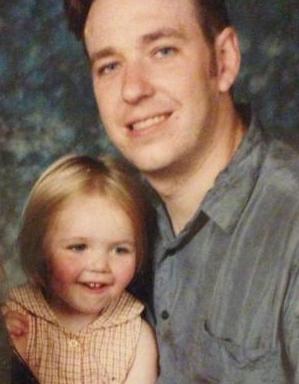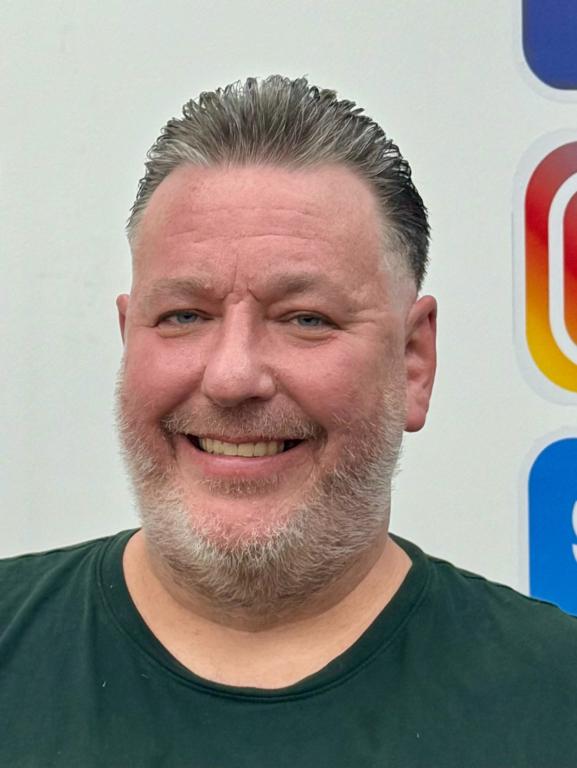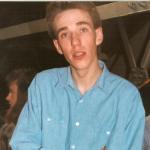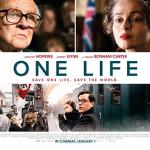In the summer of 1995, I qualified as a medical doctor, got married to the mother of my five children, and moved church to be a part of what was then a tiny church plant in Enfield, North London. I had met the founding pastor, Colin Potter at a Newfrontiers conference, and as I planned to live in North London, felt that joining his new church was the best thing. The early days of the church plant were exciting, challenging, but at times it felt like it was slow moving.
This is now the third instalment of the story of my life. Here are the other two:
For a season I was involved in two plants at once as I was actually living in London’s East End. Three different churches were co-operating in a plan to start a church there. As a result, for a few months I stopped going to what was then called Kings Church, Enfield and attended instead Kings Church Ilford. Years later these two churches merged to form Jubilee Chuch London’s third multi-site venue.
After a while, the possibility of switching back to Jubilee London was raised. I was hesitant, as I wanted to see the work we were doing with the church plant through, although various factors seemed to suggest that perhaps I was not in the right place at the time.
One night I had a dream about being in a car that was accelerating towards a barrier and a certain accident. As I woke, I heard a clear voice speak to me in my head which said, “Adrian sometimes it’s the right time to stop or change direction.” I knew then that I had to go back to the church that would become Jubilee.
I re-joined the church that in many ways my heart had never left just as our numbers doubled due to our first church merger. We were still small, however.
The first 10 years of the life of Jubilee Church were very much a time of preparation. We were less than a hundred adults, but there was a good foundation in the church, and an informal leadership team had emerged serving alongside the elders.
Tope Koleoso was active in leadership from very early on. But in the early years he resisted Colin’s encouragement to become an elder/pastor (we use the terms interchangeably). He said, “I will help you in any way, I will even preach, just don’t make me an elder.”
Shortly after Tope had finally agreed to become an elder, Colin announced he would be leaving the church to plant another. This left five of us on the leadership team, two elders, and three of us who helped and supported them.
All four of us over a couple of weeks met individually with Tope and said something like, “I really believe that this large church we have felt that God is going to build here will actually happen. I also believe that God wants me to stay here long-term and serve under your leadership in whatever way to help with what God is calling you to do. I’m not going anywhere.”
You can imagine how encouraging such a conversation must have been to Tope, as he was taking on the church leadership. It was surprising as in those days church planting was very much seen as an inevitable next step for people who emerged as leaders in one of our Newfrontiers Churches. None of us who served on that leadership team felt any interest or calling to do that, believing instead God wanted us to continue to support and build a large city church. For two decades that team remained intact and even now I am the only one from the original team who has moved on.
In 2005 Jubilee Church moved into Enfield Cineworld and began to grow as God pressed the fast forward button. Like so many of the major moves that I have been involved with, that one was prompted by the prophetic, but as this is about my story rather than Jubilee’s I will leave that story to another day. For 25 years Jubilee Church was a constant in my life, and such a blessing in so many ways. I’m especially grateful that my five children have been part of this church as they grew up. It was a great spiritual home.
For a little diversion let me talk about my work. My career began when I was still a child, actually I am not even sure I was technically old enough to work, there so I am not going to say how old I was. But I remember washing cars for the neighbors. It was like I had my own little business. I remember that I got these little leaflets done, and invested in a washing-up bucket and what I needed. And that raised the money I needed to buy my first computer. It’s a measure of how old I am that that first computer was called an ‘Oric 1’ Not the ZX81, which was far inferior, not the Sinclair Spectrum, which was the PC of its time. I like to think I had the Apple of its time – the Oric 1.
There are lots of different kinds of jobs. That was my first job and then of course, like many people in my day, I did a newspaper round.
I quickly graduated to collecting money from people’s homes to pay for their newspaper delivery. I just want to point out – I was not a debt collector, okay? The service was that I would go around and collect their money to save them having to go into the newsagents. I wasn’t chasing up bad debtors, just providing a helpful service.
I also remember washing dishes in a restaurant. I worked in factories as well. I worked in a plastic manufacturing company where we poured molten plastic into certain moulds and made stuff. I think I only did that for about a week or so. One of the things that put me off was when my machine stopped working, and I asked for help from one of the supervisors. Unfortunately molten plastic poured all over his hands as he was trying to fix the thing. I learned a bit about health and safety at work. Perhaps that led to some of my later direction, I’m not sure. But I got out of that job pretty quickly!
Then I remember actually working for what I call a “banana factory.” My job was this: I had to open boxes, take the bananas out of the boxes, put them on a conveyor belt, and somebody else would put them in another box. And I remember thinking at the time, “What was this about?” But it was only as I reflected on this that I realized the reason why the new boy was put on the ‘taking the bananas out of the boxes’ job. I was front-line for the tarantulas, I’m sure of it now! They never told me to look out for them. I suppose they thought I’d notice them pretty quick! And I don’t know what would have happened if one would have been there and bitten me. It was my job to stop you from being confronted by a spider when you bought your bananas. It was a very important role!
Then there was the chicken factory and I think I left that after a chicken fell on my head. It was dead, I should say. I wasn’t so good in that factory either. But in all these different jobs that I was doing while I was still at school, there were lessons that you learn that you then apply to other work.
I think that we sometimes get so caught up in our own career that we think we can only learn from people in the same line of work. One of the remarkable things was meeting some people there who said things like, “Oh I’ve worked here for 15 years.” It seemed like a long time, but they often said, “I love this job, it’s great.” It was quite interesting to see, because I to be honest, I haven’t always seen that level of contentment in some of my later colleagues.
I also worked as a cleaner in a hospital. I really wasn’t very good at that job. It took me hours to vacuum one corridor – and I didn’t do it very well! So I think I lasted in that one about two days.
I was a bit better at being a hospital kitchen porter. So my job was to move things – lots of baby food– from the hospital kitchen to the wards. Then I graduated to being a kitchen chef. So I actually cooked the vegetables for the hospital. I was actually quite good at that! I discovered that the real secret was to actually under-cook the vegetables because when they were slightly undercooked, they would still cook in the trolley and hopefully by the time people ate them, they weren’t completely mushy.
Then I became an auxiliary nurse. I did that for a little while. Again this was during holiday times. My career plan was to actually become a doctor and having worked as a nurse first helped me understand their role.
When I first arrived at medical school I was quite nervous, convinced that someone had mixed up my exam results. But by God’s grace I got through, and became a doctor in 1995.

In my early roles as as a junior doctor. I would treat people as they came in with heart attacks, or appendicitis, and work throughout the night. Sometimes I’d have to work from 9am on a Saturday morning and not finish until 6pm on a Monday evening, and then had to come back to work on the Tuesday. What’s scary though is that when we go in a plane, we limit the number of hours an airline pilot can do because we think it’s important they’re awake when they’re flying the plane. I believe that these days junior doctor’s hours are more limited, fortunately.
I then specialised in psychiatry, taking another qualification. At times, I did a bit of work in schools assessing children who were possibly mentally unwell, as well as assessing prisoners who were going to be tried. So I understand a little bit about what that those environments involve.
My next step, by a set of so-called “co-incidences” was to work in the head office of a large pharmaceutical company, working very closely with sales and marketing, dealing with the media, the regulators and coping with all the office politics. I learnt a lot about crisis management, and understood how journalists approach controversial stories involving big companies.
Next I worked from home before that was trendy helping to run big clinical trials into new medicines for psychiatry. I worked from my home office, but travel the world a fair amount. Later I would return to working for pharma companies in their head office and I was a European medical director by the time I got sick and had to stop work.
People sometimes ask how I came to write a blog. I wish there was some kind of flash of inspiration, some foresight that the Internet was clearly not just for geeks. But there wasn’t. Back in 2003, relatively few people were online. Fewer still would actually write their own website or blog posts. I had a personal website for a few years before then where I had posted a couple of articles, and my sermon notes. Then one day, I was just a little bored. It was really as simple as that. I thought to myself that a blog might be a good way for me to store a few quotes and snippets of thoughts, and perhaps some things I was writing to prepare for sermons. I also thought that it might be something that my children might be interested in years later. But it really as simple as that, and so my blog began.
I was genuinely surprised when my blog began to become popular. I met new friends online, some of whom I would go on to meet in the flesh. I learnt a lot, especially from early debates and discussions, where the brevity of the content forced clarity of thought. Reading what people actually believe rather than what someone else says they believe is powerful. My own thoughts were shaped so much in those early years of blogging, especially in how I should explain my ideas to others.
I was quite busy in those days. I would preach regularly. I was writing blogs. I was working hard in my secular job. I was also quite involved in other practical aspects of helping to lead a growing church. Not to mention being a father of five children!
I developed a routine over a few years where I would usually shut the blog down for my summer holidays, and again for the Christmas period, and sometimes January too. This was to bring a sense of disconnection, and refreshment.
One year I was much more weary than I had been in previous years. My downtime didn’t lift me up like it usually did. I was tired. I was not in that good a spiritual place.
One day that Spring I got a phone call from Tope Koleoso, my pastor, asking me if I would preach on Easter Sunday. I was less than enthusiastic and said I would “pray about it,” which was Christianeze in this case for “That means I’d have to preach the gospel again. How boring.” Yes, I am ashamed to admit it, but that was what went through my mind. I prayed a half-hearted prayer and went to sleep that night.
In the middle of the night I woke up suddenly, and sat up in bed. I heard a voice in my head which said “Adrian, preach on the resurrection!” Life came into me immediately. I rang Tope, enthusiastically accepted the offer to preach, and began to study the resurrection furiously. I looked for a book on the resurrection. I basically couldn’t find any apart from what I cheekily called the rather large “Big Green Book” by N.T. Wright. I found a quote from Spurgeon complaining that there were no books available in his day on this subject and bemoaning what he felt was a lack of emphasis. Quickly I knew this internal sense of call was not just a call to preach a single sermon that Easter Sunday, but a life message. I remember thinking months before this when someone had suggested I consider writing a book, “but for that I would need a life message, how do people get one of those?” Now I had one.
I sent an email to Justin Taylor at Crossway who was a fellow blogger and asked him to be honest with me about my idea for a book on the implications of the resurrection. He liked it, and asked for a proposal, which I wrote and quickly got accepted.
Afterwards I learnt how difficult many people find it to get a publisher and felt both embarrassed and convinced that clearly God was in this. The day I called Tope about this he whooped down the phone if anything more thrilled than I was about it. To have a pastor who is so “for” you is a real joy.
When there were still just a tiny handful of people in the world who knew about all this, something even more remarkable happened. I was in a meeting, when a prophetic individual who did not know anything about me said something like, “I see a picture of you holding a pen in your hand. I see you writing, and your words going out all over the world to many people. I also see you writing books.”
That is what we mean by prophecy. It was incredibly encouraging. I spoke to the guy afterwards and told him to his surprise I was a blogger, that on the blog at the time there was a picture of a hand writing with a pen, and that it was actually my hand, and about my contract. He knew none of this.
The end result was Raised With Christ – How the Resurrection Changes Everything. The process of writing it was both challenging and incredibly rewarding. I realized that the gospel I had preached all those years ago at Hyde Park Speakers Corner was seriously deficient. The resurrection of Jesus must never be assumed. In studying I found spiritual life and vitality. When editing got tough, and I felt like giving up, the prophetic word drove me on.
Writing it helped me personally, and I know that it has challenged and encouraged people who read it.
When I finished writing my first book, I really thought that would be it. That I would never write another book. But a few years later another book was coming. It was Sunday October 14th, 2012. I was happy. My eldest daughter was being baptized that day. I was so thrilled for that, and so glad to be part of Jubilee Church that day. I was listening to my pastor, Tope Koleoso, preaching on the Pharisee and the Prostitute. Suddenly, out of the blue it hit me, “this needs to be a book” and not just that sermon, although it became the first chapter, but other things we had been teaching at Jubilee Church for years.
I wrote an outline right there and then as I was listening to the sermon, which survived almost unchanged in the chapter titles of the book Hope Reborn – How to Become a Christian and Live for Jesus. The final list follows:
- The Pharisee and the Prostitute
- Died for you. Raised for you
- How Do I Become a Christian?
- Next Steps: What Do I Do Now?
- You Can Change
- Growing in Your Faith: Reading the Bible.
- Walking with Jesus: How to Pray
The original target was people who were at the brink of becoming a Christian, perhaps having responded to the gospel on a Sunday morning. For years we had been so blessed at Jubilee to have people responding in this way week after week. But often they don’t fully understand why they put up their hand. As Terry Virgo says, “people often get saved on a fragment of truth.” We simply wanted to help people start their Christian life on a stable foundation.
In fact for some while we had been looking for a good book to give out to people who were precisely in that position: becoming a Christian, or coming back to Jesus after a period of backsliding. All the books that we could find that were in any way similar to ours focused on one of two things that made them different to ours. Firstly apologetics, which definitely has its place for those not yet ready to become a Christian. Secondly, there were others that assumed someone was already a Christian and needed help to be discipled. We wanted to write a book that didn’t assume anything and could take someone from little to no knowledge of the Bible or the gospel, to taking their first steps as a Christian.
We also realized as we wrote that in fact the book will be of great help to any Christian. We found ourselves that as we explored the foundation all over again it did us both a lot of good. I keep saying “we” because, as I co-authored Hope Reborn with my pastor, Tope Koleoso which was a real pleasure.
This was around 40 years after I first heard the gospel from my father as a young boy. The gospeal remained my only hope, my only foundation, and the only message that can save. I will never move beyond it, and nor should you.
But the biggest challenge of all to my faith was just a couple of years away. As Tim Keller said:
“No matter what precautions we take, no matter how well we have put together a good life, no matter how hard we have worked to be healthy, wealthy, comfortable with friends and family, and successful with our career — something will inevitably ruin it.” (Tim Keller)
The story continues:














